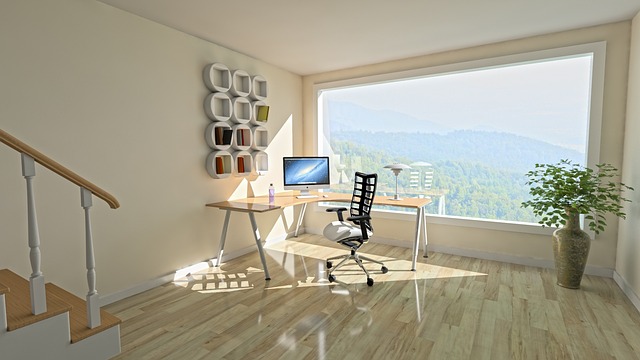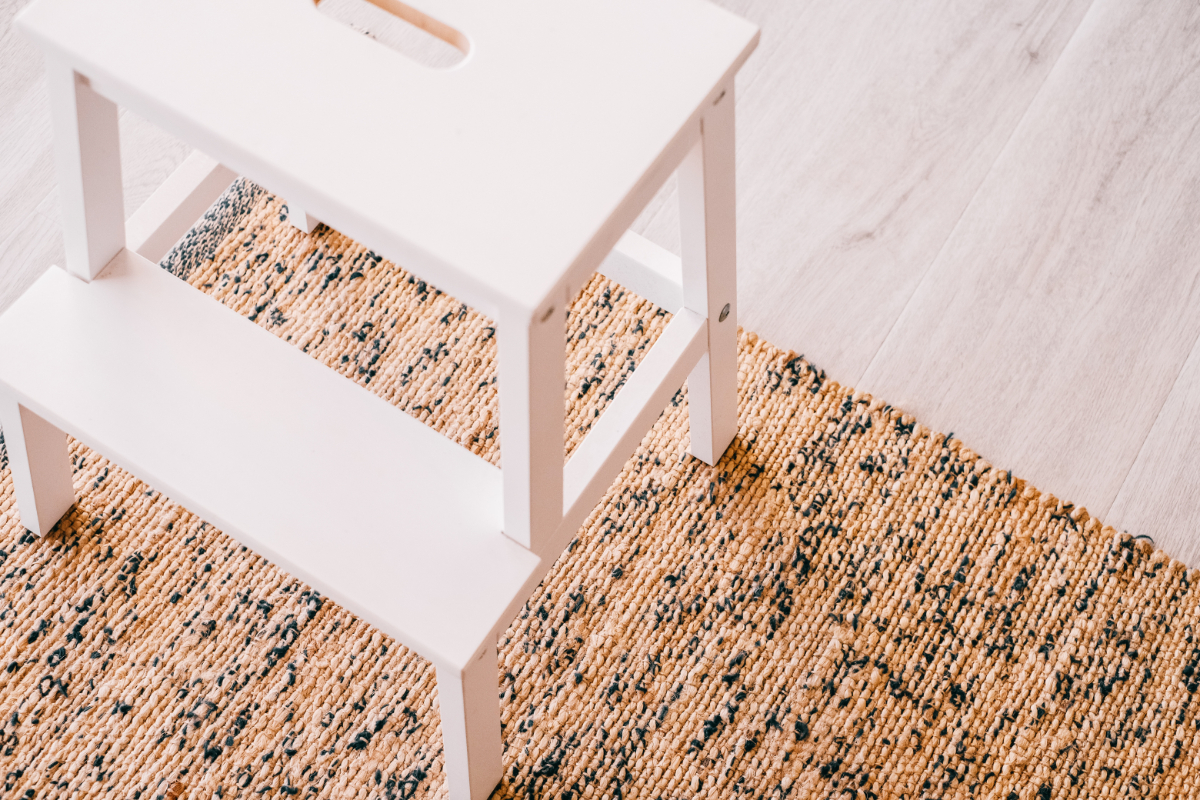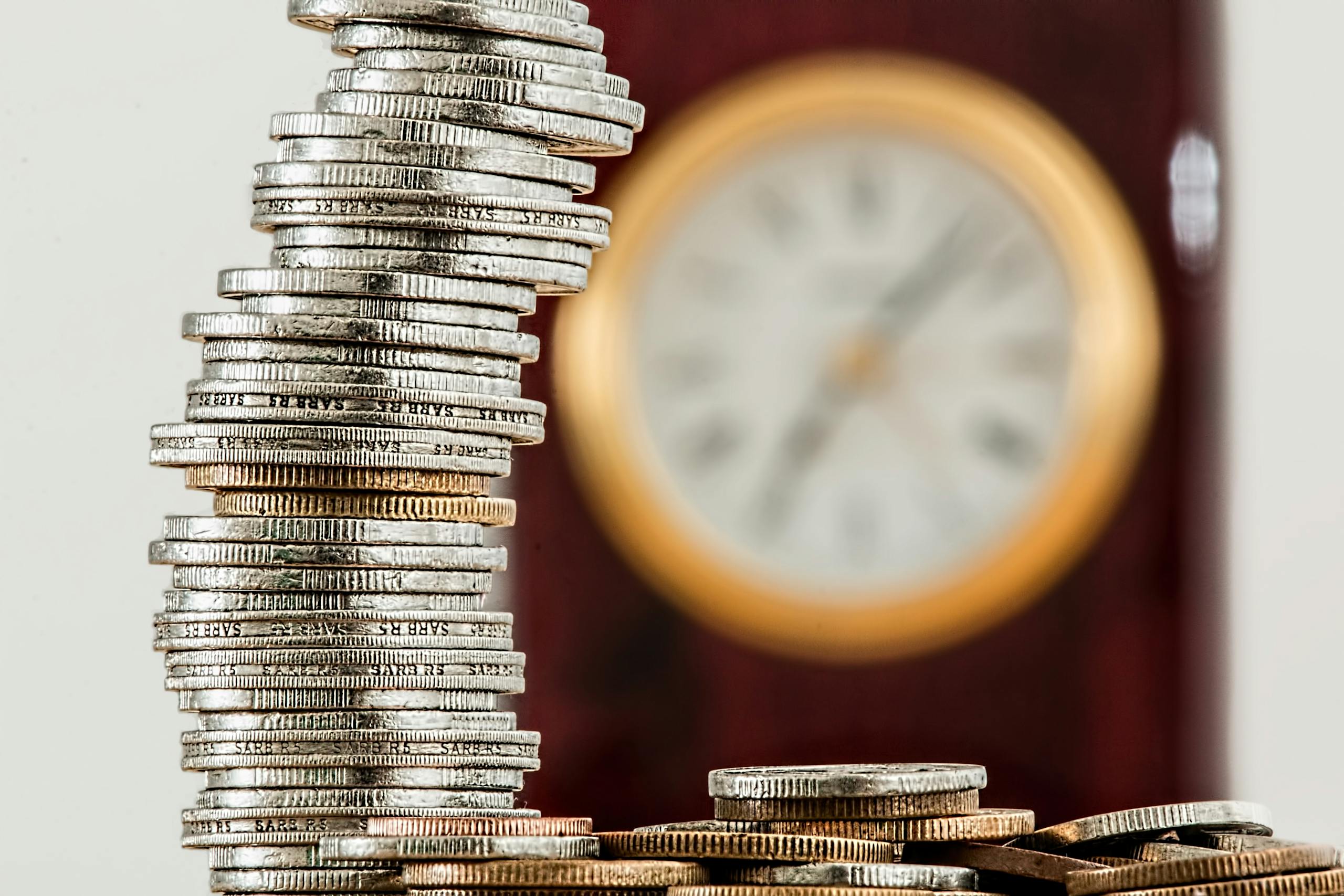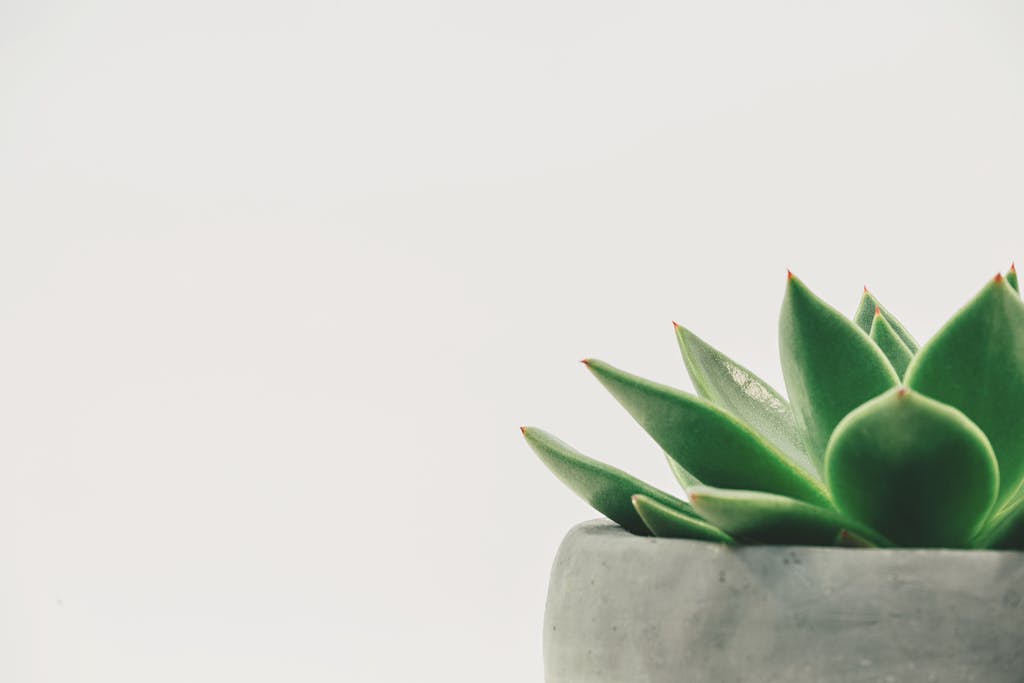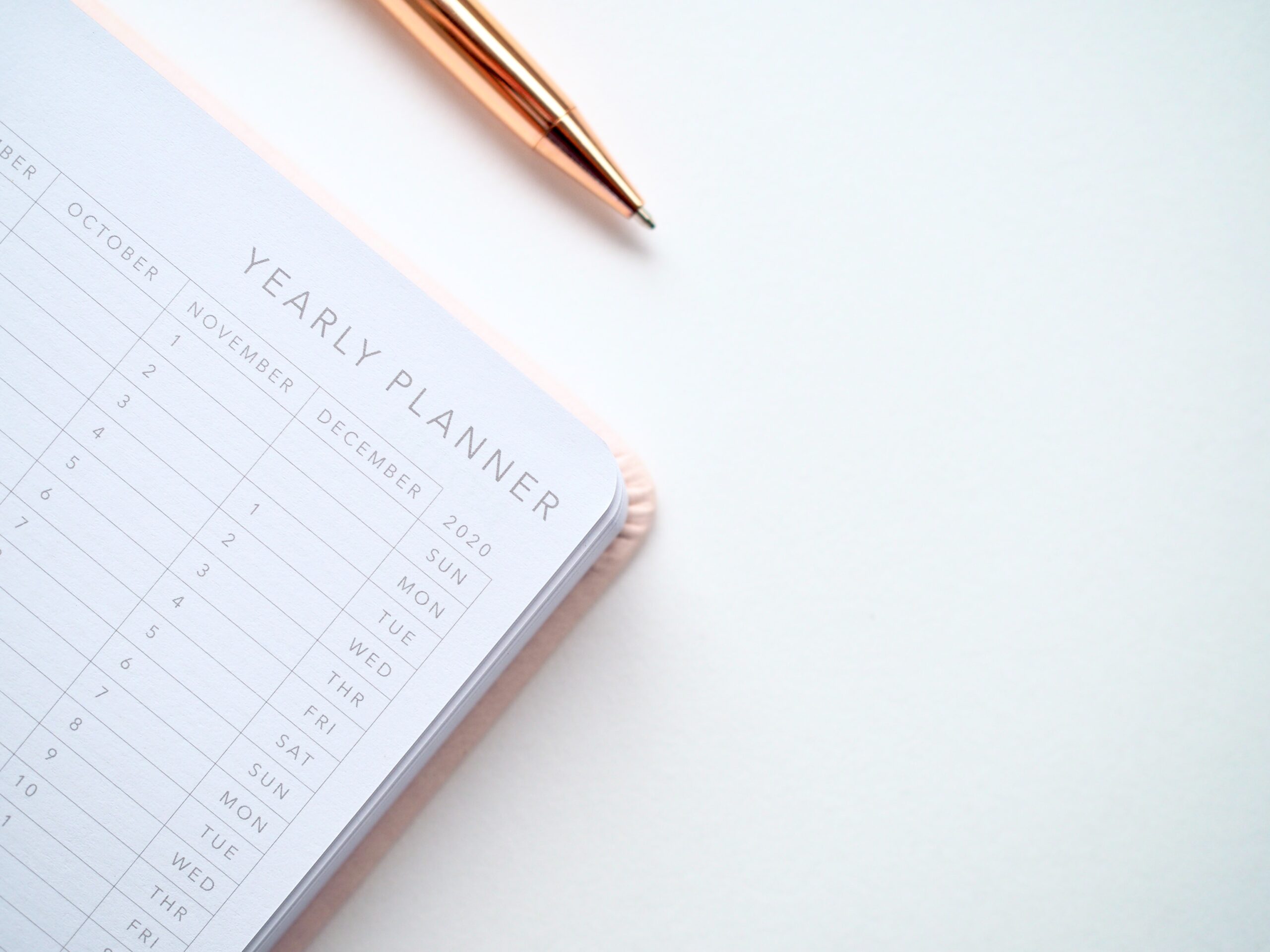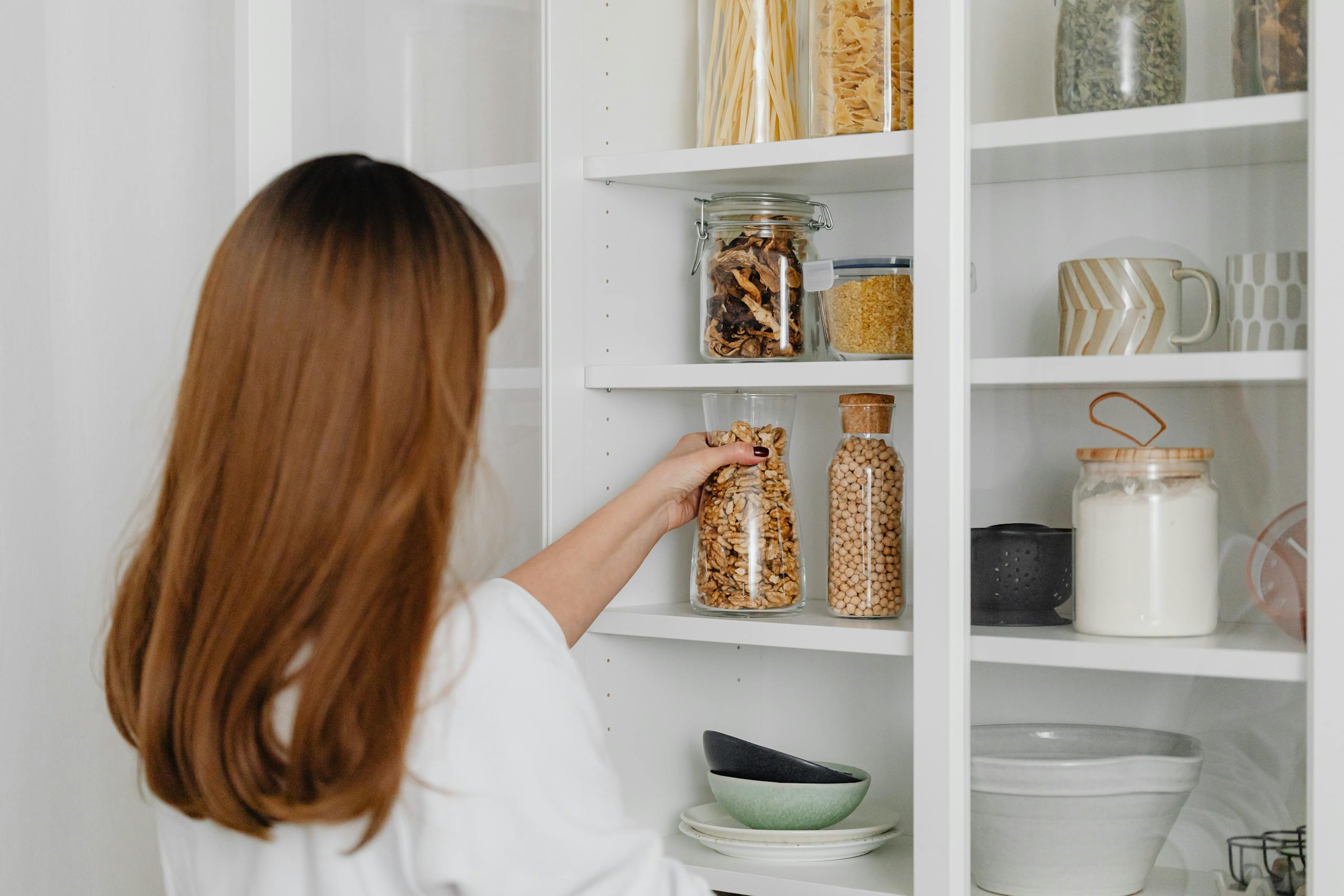Less is More: The Life-Changing Benefits of Minimalism
There are some affiliate links below, but they are all products I highly recommend. For more info, view my disclosure here.
Are you feeling overwhelmed? Are the possessions in your life taking over? If so, minimalism might be the answer. Minimalism is a lifestyle focused on reducing clutter and living with less. It is becoming increasingly popular as people strive to reduce stress and simplify their lives. Read on and we’ll review the many benefits of minimalism, including financial savings, improved mental health, and increased productivity. So if you’re ready to declutter your life and reap the rewards of a minimalist lifestyle, read on!
What Is Minimalism?
Minimalism is a lifestyle focused on having less stuff and fewer possessions. It’s about paring down to what you really need, and getting rid of the rest. This allows for more time to focus on experiences and relationships instead of material items. Mental health can be improved by living a minimalist lifestyle as it reduces stress due to clutter and keeps the focus on what’s important.
The minimalist lifestyle also eliminates distractions from everyday life so that we can focus better on our goals and priorities. By cutting out unnecessary items, we have more space for activities that bring us joy and satisfaction. Furthermore, minimalism helps us live with purpose, as it encourages us to identify values that matter most in our lives, and then prioritize them accordingly.
Living a minimalist life means saying goodbye to overwhelming obligations, clutter, and excess in order to create an environment where we are able to make meaningful choices without feeling overwhelmed or distracted. It’s an ideal way of living that provides clarity and balance in everyday life.
Money Savings
Adopting a minimalist mindset can help you save money in more ways than one. The most obvious way is that having fewer items means you have to buy less, which reduces the amount of money spent on unnecessary things. Additionally, a minimalist lifestyle encourages you to think twice before making any purchase, since it is essential for minimalists to only buy something if it is truly needed. This helps keep extra spending in check, leading to more money saved in the long run.
Less clutter also plays an important role in saving money. With fewer items around the house or workspace, you are less likely to misplace valuable objects or forget about them altogether. This can help eliminate expenses from replacing lost items and buying duplicates of something that was forgotten about. Moreover, having less stuff allows for better organization and makes cleaning easier and quicker — both of which can save time and energy over time.
Overall, a minimalist approach to life can lead to more money saved by cutting down on purchases and helping minimize losses due to clutter and disorganization. Adopting a minimalist mindset can be an effective way of managing your finances and getting ahead financially.
Clutter Reduction
Moving on from money savings, there are other benefits of minimalism that come from reducing clutter in your home. Marie Kondo’s popular decluttering process has helped many people turn their homes into a minimalist paradise! By following her steps and strategies, you can begin the journey towards a clutter-free home.
The first benefit of having a minimalist home is that it can be less costly to maintain. With fewer items around the house, there’s less of a need to buy replacements or repair broken items. Additionally, you won’t have to worry about cleaning and dusting as often since there are fewer surfaces with items on them.
Another great benefit of minimalism is that it can help create an environment free of distractions. When your home isn’t cluttered with endless objects and decorations, it helps create an atmosphere where you’re more relaxed and focused on the task at hand. This allows for greater productivity and creativity in whatever activity you choose to do in the space.
Minimalism also helps reduce stress levels by taking away unnecessary worries about purchasing new items or organizing what you already own. You’ll find yourself feeling more calm and at peace when everything has its own place – no more worrying about misplacing things or finding storage solutions for extra clutter!
Increased Productivity
Minimalism can lead to increased productivity. When there are fewer things and distractions, it allows for more focus on what is important. With less stress from having too many things or responsibilities, it creates extra time that can be used to work on projects or tasks. By decluttering and taking away the excess, it gives us a clearer view of what needs to be done and how best to accomplish those goals.
This also applies to the workplace. By having fewer items in the office, there are fewer distractions that can cause a loss of focus or procrastination when trying to finish a task or project. It also eliminates clutter on desktops and other areas which can help create an atmosphere that is conducive to productivity. Furthermore, having fewer things also means there is less tidying up involved at the end of the day which leaves more time for other activities or tasks.
The benefits of minimalism in terms of increased productivity are clear: with fewer stresses and distractions, we have more time available for creativity and problem-solving. This helps us stay organized, focused and productive on our projects while still providing enough room for relaxation and enjoyment. Minimalism can give us back control over our lives, allowing us to make better use of our time and energy by having fewer things so that we can focus on what matters most.
Improved Physical Health
Minimalism offers numerous physical health benefits. First and foremost, the environmental impact of minimalism is undeniable. The less you own, the less you must clean, which allows for more time to attend to your health and wellbeing. Additionally, reducing clutter can help lower cortisol levels in the body, allowing your body to operate at its optimal level. Less time cleaning also leaves more time for activities that are beneficial for physical health such as exercise and nutrition planning. This can lead to improved cardiovascular health, better sleep quality and an overall healthier lifestyle.
Another benefit of minimalism is that it encourages people to buy only what they need, leading them to make healthier choices when shopping for groceries or household items. With more space available in their homes, people tend to focus on buying essential items with fewer processed ingredients and preservatives. This helps improve dietary habits by reducing the amount of unhealthy food consumed on a regular basis. Finally, without the need for frequent purchases due to limited living space or storage capacity, people have more money available to invest in healthy foods and activities like gym memberships or yoga classes that contribute to improved physical well-being.
Living a minimalist lifestyle is a great way to ensure improved physical health as it reduces stress, increases free time and encourages healthier shopping habits.
Easier Decision Making
Minimalism can be incredibly beneficial when it comes to making decisions. By reducing the number of material possessions and promoting a minimalist lifestyle, many people find that they have fewer and simpler choices to make each day. This can lead to greater peace of mind, as there are fewer factors to consider when deciding between options. In addition, intentional promotion of minimalism can also help to reduce decision fatigue, which is often caused by having too many choices in life.
The process of simplifying decision making through minimalism works by removing excess items or activities from our lives. This allows us to focus on the things that really matter and prioritize them accordingly. Furthermore, this practice also encourages us to be more mindful about our decisions and how they may affect our lives in the long run. By reducing distractions and clutter, we are better able to focus on what truly matters and make decisions with greater clarity and confidence.
Overall, minimalism has many hidden benefits when it comes to decision making. By living a more intentional lifestyle and eliminating excess items from our lives, we can create more space for important decisions while also staying focused on what’s important in the present moment. This not only leads to better decision-making but also helps us cultivate greater peace of mind in the process.
More Time For What Matters Most
Minimalism brings a profound change to one’s daily routine. This can be seen in the newfound free time that is available to pursue activities that bring joy and meaning. By reducing the amount of material possessions one owns, individuals have more money in their bank account to use on experiences that bring fulfillment. Through voluntary simplicity, minimalists are able to focus more attention on relationships and pursuits of purpose.
The abundance of time that results from living with less can be used to travel, explore new hobbies, or simply relax without worrying about lack of funds. With minimalism comes freedom from the need to keep up with the latest trends and gadgets. No longer is there a pressure to buy items for the sake of conformity or keeping up appearances. Instead, minimalists are free to spend their money as they please and enjoy life at their own pace.
More free time results in more opportunities for meaningful connections and growth. With fewer commitments and obligations, minimalists have the chance to take part in activities that make them feel alive and cultivate relationships with others who share similar interests. Minimalism also allows individuals create space for themselves so they can focus on being present and living life intentionally.
Reduced Stress Levels
Minimalism can have a positive effect on one’s emotional health, as it reduces the amount of stress in life. By having fewer opportunities, one is able to focus more on what really matters and spend less time worrying about trivial things. This simplification of life leads to lower levels of financial stress, as money is not being wasted on unnecessary items. Furthermore, without visual clutter cluttering up one’s living space, it can be easier to relax and feel at ease.
One of minimalism’s greatest benefits is that it eliminates much of the stress related to material possessions. With less stuff comes fewer distractions, which allows one to focus more on activities that bring them joy. Furthermore, a minimalist lifestyle can help reduce anxiety by removing excess noise and visual stimulation from everyday life. This makes it easier to find balance and peace within oneself.
The practice of minimalism has many physical and mental health benefits associated with it. It has been shown to improve focus, increase motivation, reduce fatigue, and even help with depression and anxiety. By decluttering our lives, we are able to prioritize our well-being and create a calmer environment for ourselves. As a result, we are better able to manage our time and energy more effectively which leads to improved overall happiness in life.
Better Mental Health
Continuing on from the benefits of reduced stress levels, minimalism also has a positive impact on mental health. By eliminating clutter and distractions from our lives, we can create a calming living space that allows us to focus on ourselves and our wellbeing. With less clutter around us, we can more easily identify what makes us truly happy and take steps to achieve it. Additionally, minimalism encourages a healthier relationship with social media. We are less exposed to the overwhelming amount of information that can cause stress and anxiety, allowing us to better manage our time online.
Minimalism also helps the environment by reducing waste and creating better habits. When we embrace minimalism in our lives, we become mindful of how much we consume and produce in comparison to what is necessary for our daily lives. This shift in mindset leads to more responsible consumption habits which in turn help reduce waste and pollution.
In addition to this, minimalism encourages us to think critically about the items we buy and own because they often come at a cost – whether financial or environmental – so we must weigh up each purchase carefully before making it. This helps bring awareness into how much of our resources are being used which can lead to increased mindfulness and appreciation for everyday items.
Greater Sense Of Accomplishment
One of the major benefits of minimalism is the intentional promotion of the things that bring joy and satisfaction to life. The goal of minimalism is to reduce clutter and focus on what truly matters in life, allowing for greater fulfillment and meaning. Decluttering physical space has a direct correlation with decluttering mental space, leading to an increased sense of accomplishment. This heightened emotional state carries over into other aspects of life, creating more balanced and fulfilling experiences.
The feeling of accomplishment that comes with owning fewer possessions can be incredibly powerful and have life changing benefits. It can extend beyond just material possessions, teaching us how to prioritize our time, energy, and resources in a way that will lead to greater success both professionally and personally. Additionally, it can help us appreciate the value in experiences more than physical items, helping us lead more meaningful lives.
Minimizing our possessions often leads to simplifying our lifestyles in a way that encourages us to work towards bigger goals. By eliminating distraction from belongings that are not necessary or important, we are able to hone in on what really matters most in our lives and pursue it with passion and enthusiasm. We learn how to better manage our time which helps us become more productive without feeling overwhelmed or stressed out by too many tasks at once.
Committing ourselves to this lifestyle can open up wonderful opportunities for personal growth as well as improved relationships with those around us. Our newfound sense of accomplishment leads us closer towards achieving our goals while providing a profound sense of purpose and meaning within our lives.

Less Environmental Footprint
Additionally, minimalism brings a great benefit to the environment. By reducing the amount of physical possessions and unnecessary clutter, it can lead to a less environmental footprint. By embracing minimalism, people are able to question the need for certain things and make more conscious decisions about what they buy, leading to fewer resources being used. This is especially true when it comes to items that require a lot of energy and materials during their production process.
Moreover, by taking on the minimalist journey, people can also look into alternative options like buying second hand items or renting instead of owning so that there is less strain on the environment. Furthermore, those who have taken up minimalism often find themselves with extra money which allows them to invest in sustainable products that help reduce their carbon footprint even further.
By embarking on this lifestyle choice, not only can one gain greater sense of accomplishment but also contribute towards saving our planet’s resources and creating a better future for all living species.
Enhanced Creativity And Problem Solving Skills
Living a minimalist lifestyle has a positive impact on creativity and problem solving skills. When we rid ourselves of the material things that clutter our life, we are able to find different ways to look at our own life in a more creative way. By simplifying our lives, we create more space for new ideas and thoughts to enter into our minds.
Having less physical possessions also allows us to focus on other aspects of life. We can dedicate more time towards learning new skills, which can help us come up with innovative ways of solving problems or creating something out of nothing. In addition, by having fewer distractions in our environment, we can tune into what is going on within ourselves and be more productive with our thinking processes.
Minimalism encourages us to think outside the box and use what resources are already available to us in an efficient manner. It helps us sharpen our problem solving abilities and makes it easier for us to come up with creative solutions when faced with difficult situations. All in all, minimalism has the potential to unlock many new possibilities that would have otherwise been lost amongst the clutter of everyday life.
Increased Self-Awareness
Moreover, the practice of minimalism can help to increase one’s self-awareness. By reducing the amount of material possessions and unnecessary clutter in daily life, one can create a sense of freedom and clarity that can aid in better understanding how one is feeling or thinking. Through careful consideration, we can learn to recognize what truly matters most to us. This knowledge can be used to make more mindful decisions about our lives, allowing us to prioritize our time and resources on what will give us the greatest satisfaction.
By focusing on our personal values and desires instead of material items, minimalism allows us to become more aware of ourselves and our surroundings. This awareness helps us distinguish between wants and needs when making decisions; it gives us the courage to pursue meaningful experiences over mindless consumption. In turn, this deeper understanding of ourselves leads to greater appreciation for life’s simple pleasures; it cultivates an attitude of gratitude which helps us connect with our innermost selves.
Clearer Life Values
Minimalism can be a great way to help identify your life values. When we have fewer things, we can focus on the important things in life. This helps us better understand what will make us happy and fulfilled. We can then use this knowledge to prioritize our decisions and activities accordingly.
Having fewer things also means that you are not wasting time on trivial matters or struggling to keep up with the latest trends. Instead, you can focus on living a simpler life that is in line with your values and beliefs. That is why minimalism is often seen as an important part of leading a happy and fulfilling life.
Overall, minimalism is a good idea if you want to find clarity about your life’s purpose and priorities. It encourages us to focus on the essentials rather than getting caught up in material possessions or momentary pleasures. By living with less, we can devote more time and energy to meaningful activities that will truly bring joy into our lives – making it an effective way of living for many people today.
Improved Relationships
Minimalism can be beneficial to relationships in many ways. First, it allows us to spend much more time with the people we care about. By removing material items from our lives, we are freed up to focus on what really matters in life. We can set goals for ourselves and our relationships that will help us better care for one another.
This means that we no longer need to worry about things like possessions taking away from time spent together. The added time can be used to deepen our connections with each other and make sure that everyone is taken care of in a meaningful way. To ensure this happens, it’s important to remember that minimalism doesn’t just mean having fewer physical things; it also means being mindful of how we use our time, and not being afraid to set boundaries when needed.
By living a simpler life and letting go of excess possessions, we are able to give ourselves and others around us constant reminders that our relationships should come first. This helps us keep the focus on what truly matters—building meaningful connections with those who matter most in our lives.
